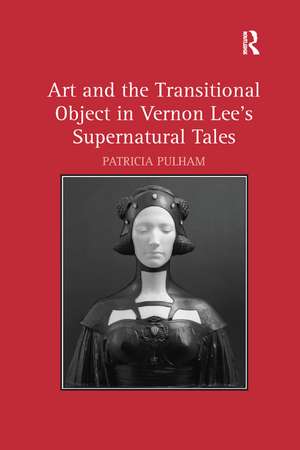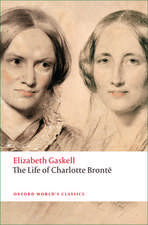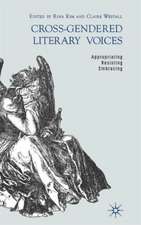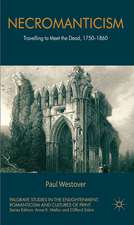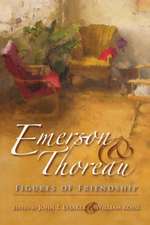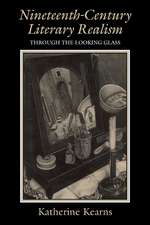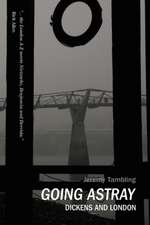Art and the Transitional Object in Vernon Lee's Supernatural Tales
Autor Patricia Pulhamen Limba Engleză Paperback – 10 iun 2019
| Toate formatele și edițiile | Preț | Express |
|---|---|---|
| Paperback (1) | 436.14 lei 6-8 săpt. | |
| Taylor & Francis – 10 iun 2019 | 436.14 lei 6-8 săpt. | |
| Hardback (1) | 1055.51 lei 6-8 săpt. | |
| Taylor & Francis – 22 mai 2008 | 1055.51 lei 6-8 săpt. |
Preț: 436.14 lei
Nou
Puncte Express: 654
Preț estimativ în valută:
83.46€ • 87.03$ • 69.37£
83.46€ • 87.03$ • 69.37£
Carte tipărită la comandă
Livrare economică 21 martie-04 aprilie
Preluare comenzi: 021 569.72.76
Specificații
ISBN-13: 9781138383739
ISBN-10: 1138383732
Pagini: 188
Dimensiuni: 156 x 234 mm
Greutate: 0.45 kg
Ediția:1
Editura: Taylor & Francis
Colecția Routledge
Locul publicării:Oxford, United Kingdom
ISBN-10: 1138383732
Pagini: 188
Dimensiuni: 156 x 234 mm
Greutate: 0.45 kg
Ediția:1
Editura: Taylor & Francis
Colecția Routledge
Locul publicării:Oxford, United Kingdom
Cuprins
Contents: Introduction; Castrato cries and wicked voices; A white and ice-cold world; Painted dolls and virgin mothers; Madonna portraits and Medusan mirrors; Coda; Select bibliography; Index.
Recenzii
’...Pulham’s close study of Lee’s horror stories is most welcome, for she provides a fresh look at Lee’s considerable talents as a creator of psychological studies of monomania. Through the lens of D. W. Winnicott’s psychoanalytic theory of the transitional object, she provides illuminating close readings of Lee’s tales, as well as several of her other works.’ Review of English Studies ’An elegant and insightful critique of Lee's supernatural writing, Pulham's study makes a major contribution to the continued critical resurrection of this Victorian woman of letters.' English Literature in Transition 'Pulham's study has real strength, notably its promotion of a wide range of Lee's fiction, its close and often rich textual engagement, and its careful analysis of Lee's Aesthetic creed and gender politics...' English Studies '... there is much in Pulham's text to recommend. She strengthens her arguments through extended comparative analyses of fantastical stories by Lee's contemporaries and antecedents: Hoffman, Henry James, Balzac, Poe, etc. She draws upon an impressive array of secondary texts that illuminate aspects of art history, aesthetics, and various and varying psychoanalytical ideas that support her thesis. There is enough fascinating detail in each chapter to spark the scholarly imagination into pursuing, perhaps in very different ways, some of Pulham's often ingenious ideas.' Journal of the Fantastic in the Arts
Notă biografică
Patricia Pulham is Senior Lecturer in Victorian Literature at the University of Portsmouth, UK.
Descriere
Patricia Pulham combines psychoanalytic theory with socio-historical criticism in her study of Vernon Lee's fantastic tales. Using D.W. Winnicott's 'transitional object' theory, Pulham argues that the past in Lee's tales signifies not only an historical but a psychic past. Thus the 'ghosts' that haunt Lee's supernatural fiction held complex meanings for her that were fundamental to her intellectual development and allowed her to explore alternative identities that permit the expression of transgressive sexualities.
